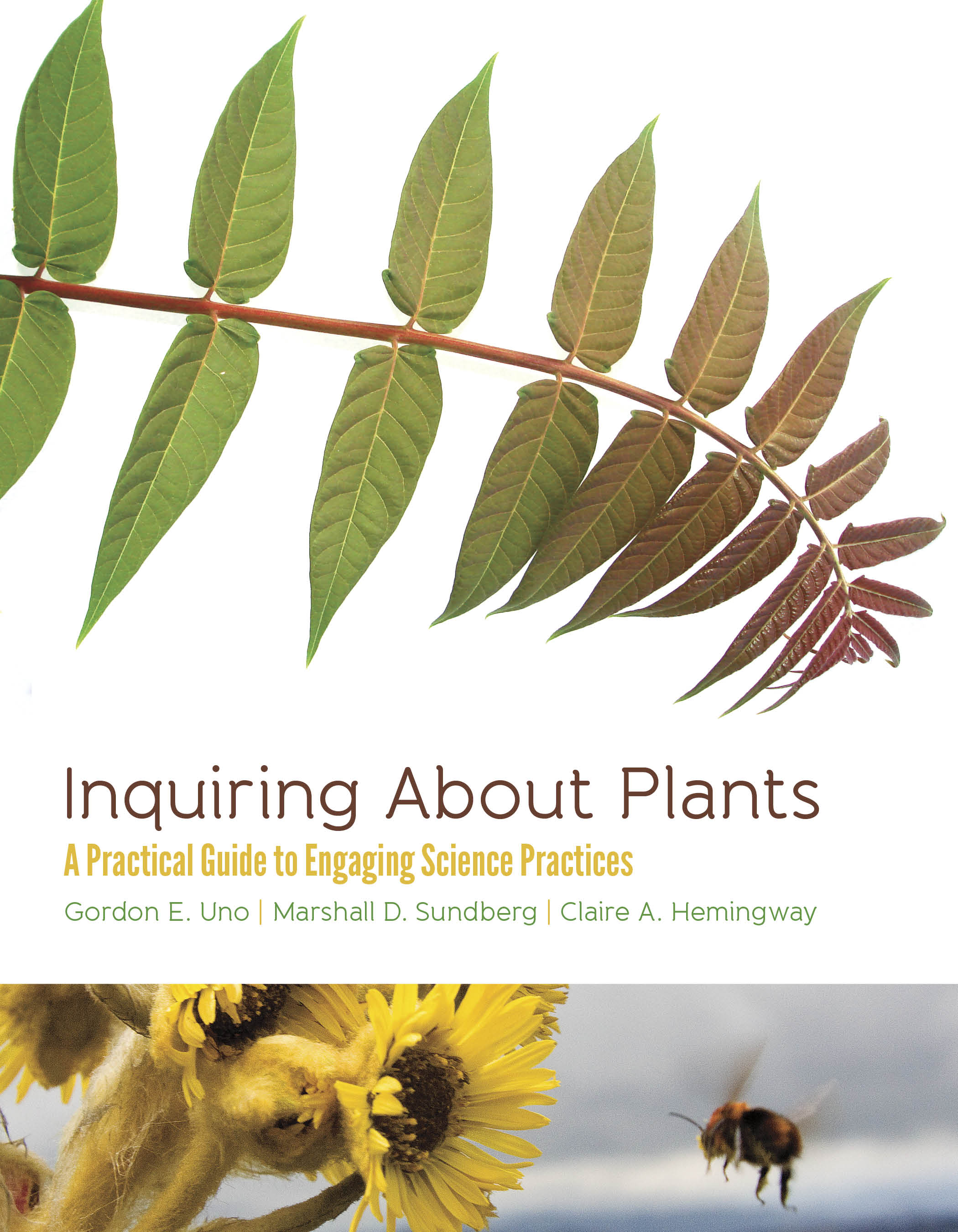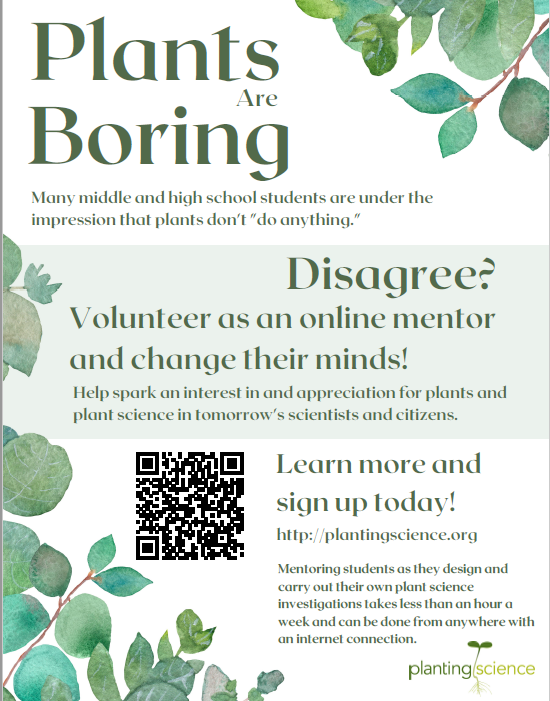Features
Featured Post
Hello Janet!
We just wanted to clarify with you what actually happened with our plants. In the end Lexi's plant died and almost curled up in the dirt. Mine was still a small sprout, maybe as big as a centimeter. It's really curious because it stayed that size for almost two weeks! And Ella's seed was just starting to split open. It was almost invisible. That plant was really curious as well because it stayed just a little split open for a week or two as well. We all took our plants home a couple days ago as well. I will not be able to report how mine is doing because the pot fell over and spilled in the car and I was unable to recover it. I'm not currently sure about Ella, but I know Lexi planted a whole nother seed. Thank you for being our mentor, and as I said, pictures will come soon! Thank you!
-Club Moss Girls
-
This post was very detailed and well written. Alicen informed her mentor of the group's final progress in an articulate way!
Help us grow!

Your contribution at any level will go directly toward increasing capacity to serve more teachers and students and it will help to sustain the program. Get a print copy of the book Inquiring About Plants: A Practical Guide to Engaging Science Practices by Uno, Sundberg and Hemingway with a donation of $30 or more.
Donate Now
Preparing for the
24-25 School Year?

Teachers! If you're thinking of bringing PlantingScience mentoring into your classroom during the 24-25 school year, applications are now open for BOTH sessions!
To apply, log in to your PlantingScience account and locate the application link under 'Resources'. For more information, check out 'Join as a Teacher' above!
Scientists, this is a great time to update your availability and consider adding Investigation Themes to your preferences. If you are new to PlantingScience, check out 'Join as a Mentor'.
We're looking forward to working with you! Please contact us if you have any questions.
-
Scientist Mentors Needed!
As we grow and continue to pursue our F2 research, we are sending out this appeal to our Scientist community: please spread the word and invite your students, colleagues, and friends to sign up and mentor with us! Mentors range from late undergraduate students to emeritus scientists. Feel free to download our mentor flyer and post it in your institution to encourage others to join us, too!
Testimonials
“I liked that we didn’t know what was going to happen before we did the experiment. Instead of being taught something and then just doing an experiment to prove it, we made an attempt to find out what would happen ourselves.”
- PlantingScience Student
“At every opportunity, all involved kept reminding my students of the process that real science requires. This helped me to convince my students that they are really doing science - not just play acting until some future date.”
- PlantingScience Teacher
“It is a lot of fun interacting with students from an age group I don’t have the chance to spend a lot of time with. It is a good reminder of where public knowledge of plant science stands, and a great opportunity for me to practice explaining key concepts in a simple and straightforward way.”
- PlantingScience Mentor

